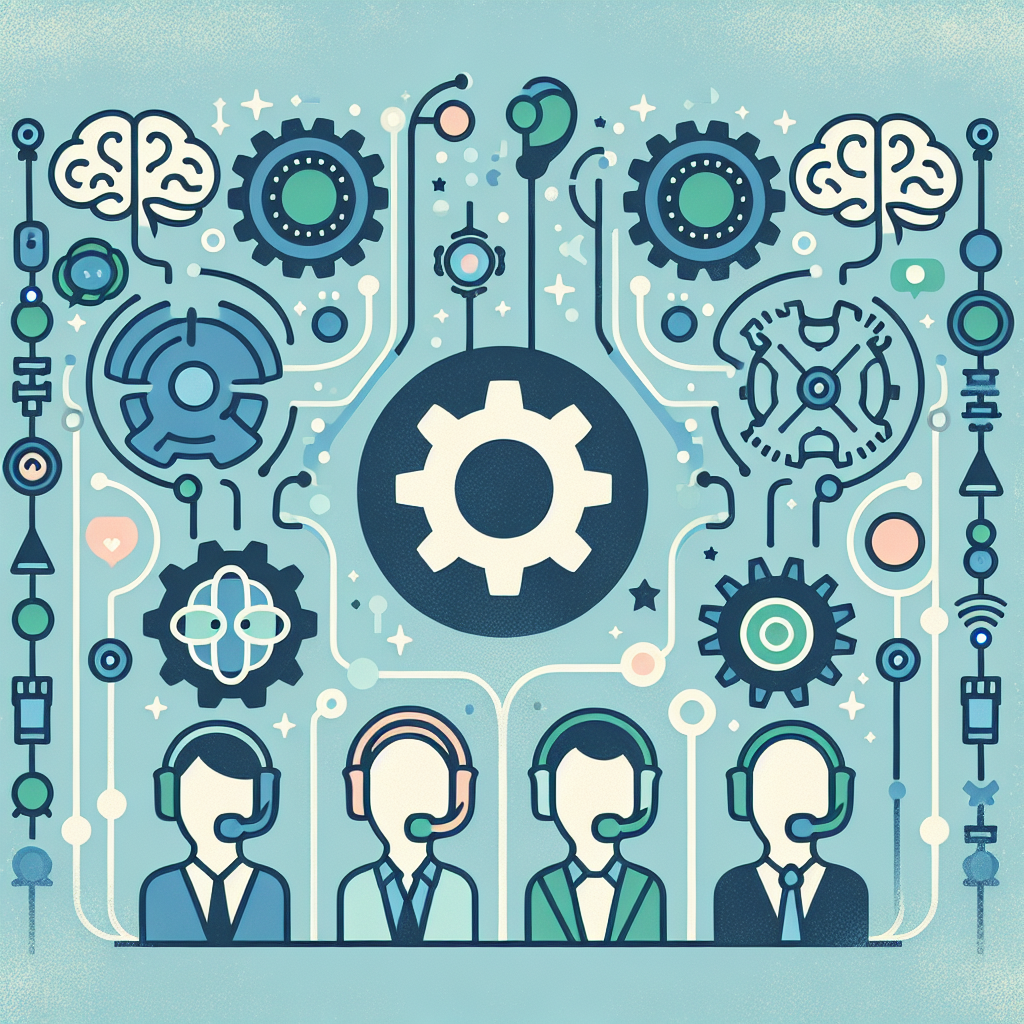Natural Language Processing (NLP) is a field of artificial intelligence that focuses on the interaction between humans and computers through natural language. It is a technology that enables computers to understand, interpret, and generate human language in a way that is valuable for businesses and individuals. NLP has a wide range of applications, from chatbots and virtual assistants to sentiment analysis and machine translation.
One of the key areas where NLP is making a significant impact is in customer service. In today’s fast-paced world, customers expect quick and efficient responses to their queries and complaints. NLP-powered chatbots and virtual assistants are revolutionizing the way businesses interact with their customers, providing immediate and personalized support around the clock.
How NLP is transforming customer service:
1. Chatbots: Chatbots are computer programs designed to simulate conversation with human users, especially over the internet. NLP enables chatbots to understand and respond to user inquiries in a natural and conversational manner. This allows businesses to provide instant support to their customers, improving customer satisfaction and loyalty.
2. Sentiment analysis: NLP can be used to analyze customer feedback and sentiment on social media, review sites, and other platforms. By understanding the tone and emotions behind customer comments, businesses can identify areas for improvement and take proactive steps to address customer concerns.
3. Personalization: NLP allows businesses to personalize customer interactions based on individual preferences and past interactions. By analyzing customer data and behavior, businesses can provide tailored recommendations and offers, enhancing the customer experience and driving loyalty.
4. Machine translation: NLP-powered machine translation tools enable businesses to communicate with customers in multiple languages, breaking down language barriers and expanding their reach to a global audience. This is especially important for businesses operating in diverse markets and industries.
5. Automating repetitive tasks: NLP can automate mundane and repetitive customer service tasks, such as answering frequently asked questions, scheduling appointments, and processing payments. By freeing up human agents to focus on more complex issues, businesses can improve efficiency and reduce response times.
FAQs about NLP and Customer Service:
Q: What is Natural Language Processing (NLP)?
A: Natural Language Processing (NLP) is a field of artificial intelligence that focuses on the interaction between humans and computers through natural language. It enables computers to understand, interpret, and generate human language in a way that is valuable for businesses and individuals.
Q: How is NLP used in customer service?
A: NLP is used in customer service to power chatbots, analyze customer sentiment, personalize interactions, facilitate machine translation, and automate repetitive tasks. These applications enhance the customer experience, improve efficiency, and drive customer satisfaction and loyalty.
Q: What are the benefits of using NLP in customer service?
A: The benefits of using NLP in customer service include faster response times, personalized interactions, improved customer satisfaction, enhanced efficiency, and expanded reach to a global audience. NLP-powered tools enable businesses to provide instant support, analyze customer feedback, personalize interactions, automate tasks, and communicate in multiple languages.
Q: How can businesses implement NLP in customer service?
A: Businesses can implement NLP in customer service by leveraging NLP-powered chatbots, sentiment analysis tools, personalization algorithms, machine translation software, and automation solutions. By integrating these tools into their customer service processes, businesses can enhance the customer experience and drive loyalty.
Q: What are the challenges of using NLP in customer service?
A: Some of the challenges of using NLP in customer service include language barriers, cultural differences, data privacy concerns, accuracy issues, and ethical considerations. Businesses need to address these challenges by implementing robust NLP solutions, training their staff, and ensuring compliance with regulations.
In conclusion, Natural Language Processing (NLP) is revolutionizing customer service by enabling businesses to provide instant support, analyze customer feedback, personalize interactions, automate tasks, and communicate in multiple languages. By leveraging NLP-powered tools, businesses can enhance the customer experience, improve efficiency, and drive customer satisfaction and loyalty. As NLP continues to evolve, the possibilities for enhancing customer service are endless.

